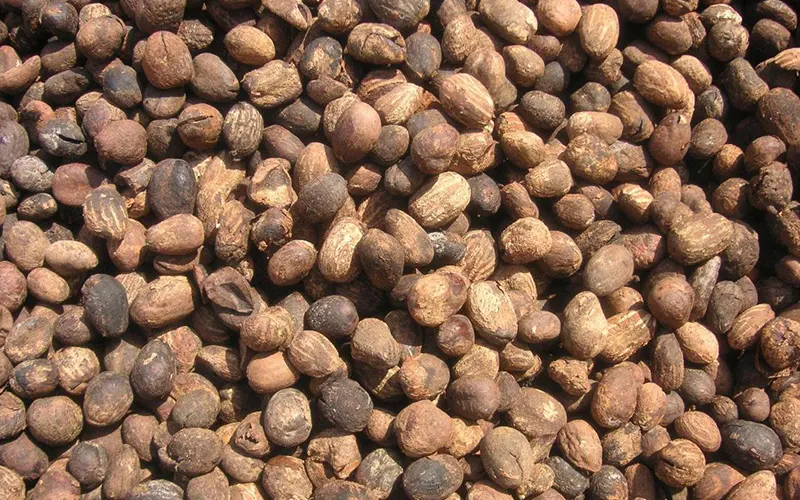
Shea nuts, also known as shea kernels, are the seeds of the shea tree (Vitellaria paradoxa), which is native to the West African savannah regions. Shea nuts are an important agricultural product in Africa and have gained recognition worldwide for their versatile uses. Here are some key points about shea nuts:
- Origin and Cultivation: Shea trees grow primarily in the semi-arid regions of West Africa, including countries such as Burkina Faso, Ghana, Nigeria, and Mali. They are well adapted to the harsh climate and can withstand drought conditions. Shea nuts are harvested from the shea tree, which typically starts producing fruits after 15-20 years.
- Nutritional Composition: Shea nuts are highly nutritious and contain a balanced profile of healthy fats, protein, dietary fiber, and various vitamins and minerals. They are particularly rich in oleic acid, a monounsaturated fatty acid that is beneficial for heart health. Shea nuts also provide vitamin E, which is known for its antioxidant properties.
- Extraction of Shea Butter: The main commercial use of shea nuts is the production of shea butter. Shea butter is a versatile and widely used natural fat in cosmetics, skincare products, and the food industry. To extract shea butter, the nuts are collected, dried, and then shelled to obtain the kernels. The kernels are roasted and crushed, and the resulting paste is kneaded and boiled. Finally, the oil is separated from the paste, solidifies into shea butter upon cooling, and is further refined if necessary.
- Cosmetics and Skincare: Shea butter is renowned for its moisturizing and nourishing properties, making it a popular ingredient in cosmetics and skincare products. It is used in various formulations such as lotions, creams, soaps, and lip balms. Shea butter is known for its ability to hydrate the skin, reduce inflammation, and promote elasticity.
- Culinary Uses: Shea nuts themselves are not commonly consumed as a food product, but shea butter derived from the nuts is used in traditional African cuisine. In some regions, shea butter is used in cooking, particularly in sauces, stews, and as a flavoring agent. It can add a rich, nutty taste to dishes.
- Economic and Social Importance: Shea nuts and shea butter play a significant role in the livelihoods of many rural communities in West Africa. The collection and processing of shea nuts provide income and employment opportunities, especially for women. The production and export of shea butter contribute to the economic development of these regions.
Shea nuts and shea butter have gained international attention due to their various benefits and uses. The sustainable sourcing and fair trade of shea nuts and shea butter have also become important considerations in the industry, promoting ethical practices and supporting the communities involved in their production.



